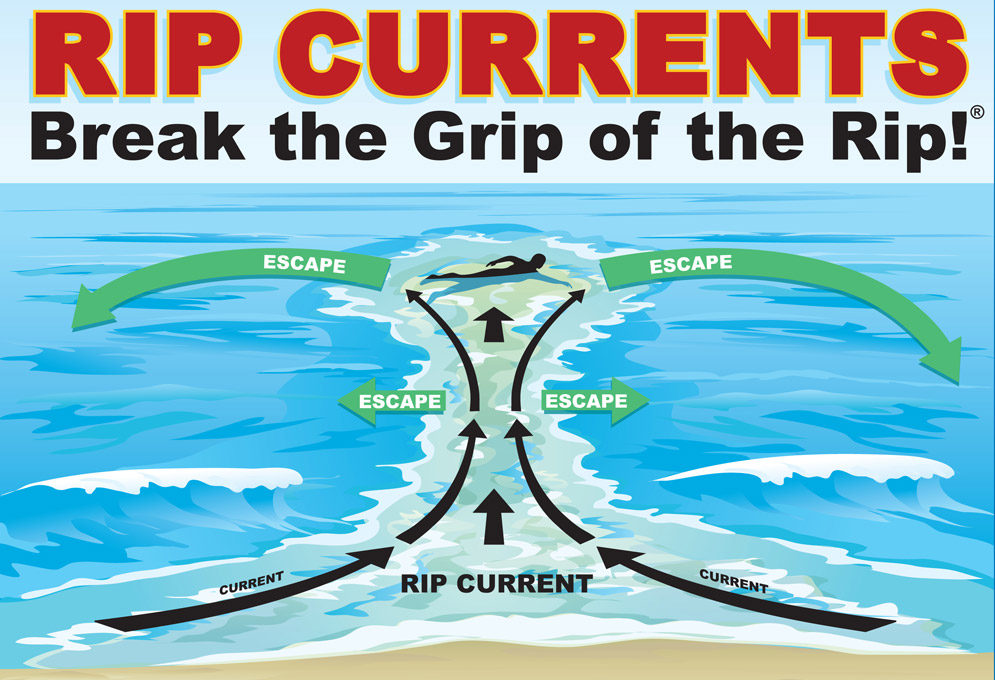Spotting and Surviving Rip Currents
Eight ways to avoid or swim out of summer killers

If you’re caught in a rip current, experts say, don’t try to swim to shore: that only increases your chances of drowning. Instead, swim parallel to shore or float on your back until you’re free. Illustration courtesy of National Oceanic and Atmospheric Administration
Rip currents—those mighty tentacles of fast-moving water that drag swimmers away from shore—are estimated to kill more than 100 people at US beaches annually. They do not pull victims underwater, as many assume. Rather, “People drown in these because they panic or get tired from trying to swim back to shore,” says Cliff Merritt, BU Fitness and Recreation Center aquatics manager. What can you do to avoid a rip current, or escape from it if you’re caught? Merritt and the United States Lifesaving Association offer the following tips.
Signs of a potential rip current…
- You notice a column of choppy and churning water.
- You can see an area in the water that has a noticeably different color.
- You observe a line of foam, seaweed, or debris that’s moving steadily out to sea.
- There’s a break in the pattern of incoming waves.
More than one of these indications may be present, but unfortunately, none may be. So if you find yourself in a rip current…
- The best protection is always to swim with others and only at beaches with lifeguards. Face shore, wave your arms, and shout for help. If you’re swimming with someone caught in a rip current, don’t try to save the person yourself, as many people drown that way. Instead, summon a lifeguard or have someone dial 911. If possible, throw the victim something that floats.
- Don’t fight the current by swimming towards shore. The speed of rip currents averages one to two feet per second, but they have been clocked at eight feet per second, which is faster than any Olympic swimmer can sprint in the pool. Instead…
- “Swim parallel to the shore until you are out” of the current, Merritt says, “then swim diagonally, away from the current, back to shore.” As an alternative, he says, you can…
- “Relax, float on your back, and ride it out until you get dumped out of it.” Again, swim diagonally away from the current to shore.
Find more tips on safe swimming here.

Comments & Discussion
Boston University moderates comments to facilitate an informed, substantive, civil conversation. Abusive, profane, self-promotional, misleading, incoherent or off-topic comments will be rejected. Moderators are staffed during regular business hours (EST) and can only accept comments written in English. Statistics or facts must include a citation or a link to the citation.